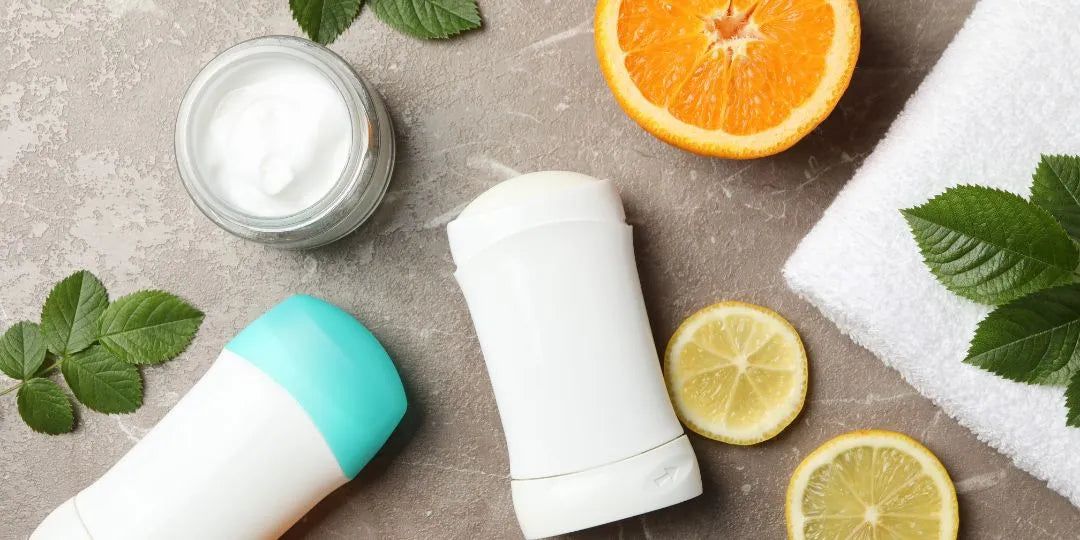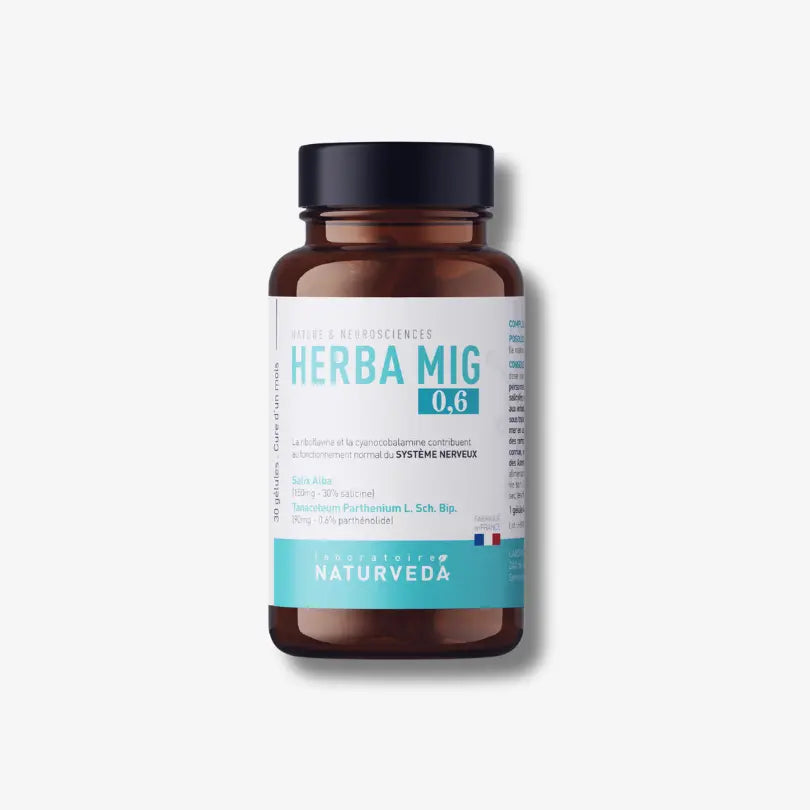Commercial deodorants, often loaded with potentially harmful chemicals, raise concerns about their health effects. Making your own natural deodorant is not only an answer to these concerns, but also a way to control the ingredients you put on your skin. Want to give it a try? Discover recipes and tips in this article, as well as the benefits of these natural deodorants!
What are the benefits of making your own natural deodorant?
For health and well-being
Avoid harmful chemicals
Commercial deodorants often contain ingredients like parabens, preservatives that can disrupt the hormonal system and have been linked to certain cancers. Aluminum, used to block sweat glands, is suspected of contributing to diseases like breast cancer and neurological disorders. Triclosan, an antibacterial agent, is an endocrine disruptor and can irritate the skin. By making your own deodorant, you eliminate these risks.
Natural and healthy ingredients
Natural ingredients like coconut oil, shea butter, and essential oils are rich in skin-loving properties. Coconut oil has antibacterial and moisturizing properties, shea butter is nourishing and soothing, and essential oils can have antiseptic and calming effects.
Respect for sensitive skin
Sensitive skin typically reacts poorly to the synthetic ingredients and artificial fragrances found in commercial deodorants. Natural, homemade deodorants, without harsh chemicals, are gentler and better tolerated. You can adjust the ingredients to minimize the risk of irritation and allergies.
For the environment
Waste reduction
Commercial deodorants are often packaged in plastic containers that contribute to environmental pollution. By making your own deodorant and using reusable containers, you reduce your plastic footprint. This helps reduce the amount of waste that ends up in landfills and oceans.
Transparency
When you make your own deodorant, you know exactly what ingredients are used and where they come from. This allows you to choose quality, organic and sustainably sourced ingredients, contributing to a more ethical and eco-friendly lifestyle.
For economy and customization possibility
Financial savings
Buying basic ingredients like baking soda, coconut oil, and essential oils in bulk can be more economical in the long run than buying commercial deodorants on a regular basis. You can make multiple batches of deodorant with the same ingredients, reducing unit costs.
Personalization
By making your own deodorant, you can tailor the recipes to your specific tastes and needs. For example, you can choose your favorite essential oils for scent, adjust the proportions to achieve the ideal texture, or add additional ingredients for specific properties, such as calendula for soothing or activated charcoal for purifying.
Personal satisfaction
There is great satisfaction in knowing that you are using a product that you have made yourself, with quality ingredients that you have chosen. This approach strengthens your autonomy and your ability to take care of yourself and your family in a natural and healthy way.
DIY: prepare your own natural deodorant
Here are three natural deodorant recipes you can make at home. Each recipe uses easy-to-find ingredients and offers different properties depending on your needs.
Baking Soda and Coconut Oil Deodorant
Ingredients :
- 3 tablespoons coconut oil
- 3 tablespoons baking soda
- 2 tablespoons cornstarch or arrowroot
- 10 drops of essential oil (lavender, tea tree, or your choice)
Instructions :
- Melt the coconut oil if it is solid.
- Mix baking soda and cornstarch in a bowl.
- Add the melted coconut oil to the dry mixture and mix until you have a smooth paste.
- Add the drops of essential oil and mix well.
- Transfer the mixture to a small, clean jar. Let it harden at room temperature or in the refrigerator.
Shea Butter Stick Deodorant
Ingredients :
- 3 tablespoons of shea butter
- 3 tablespoons coconut oil
- 2 tablespoons baking soda
- 2 tablespoons cornstarch or arrowroot
- 10 drops of essential oil (peppermint, tea tree, or your choice)
Instructions :
- Melt the shea butter and coconut oil in a double boiler.
- Once melted, remove from heat and add baking soda and cornstarch. Mix well.
- Add the drops of essential oil and mix again.
- Pour the mixture into a clean deodorant stick mold. Let it harden in the refrigerator.
Apple Cider Vinegar Spray Deodorant
Ingredients :
- 1/4 cup apple cider vinegar
- 1/4 cup distilled water
- 10 drops of essential oil (lavender, lemon, or your choice)
Instructions :
- Mix apple cider vinegar and distilled water in a bowl.
- Add the drops of essential oil and mix well.
- Pour the mixture into a clean spray bottle.
- Shake well before each use. Spray a small amount under each armpit.
Some tips for making your own natural deodorant
Choose quality ingredients
When making your own natural deodorant, it’s crucial to choose high-quality ingredients . Opt for virgin, organic coconut oil , which is known for its antibacterial and moisturizing properties. Unrefined, organic shea butter is also recommended for its vitamins and nourishing abilities. Use baking soda , which is pure and free of additives, and make sure any cornstarch or arrowroot you use is non-GMO . For essential oils, stick to ones that are 100% pure and organic , like lavender oil or tea tree oil, which are known for their additional antibacterial properties.
Do a tolerance test
Before using a new deodorant, it's important to do a tolerance test . Apply a small amount of your mixture to a small area of skin to check for an allergic reaction . Baking soda can sometimes be irritating to some people. If you have sensitive skin, consider reducing the amount of baking soda or replacing it with cornstarch or arrowroot to avoid irritation.
Sterilize your utensils and containers
To ensure the hygiene and safety of your homemade deodorant, it is essential to sterilize all the utensils, bowls, and containers you use. Make sure they are clean and free of contaminants to avoid contamination. Store your homemade deodorants in airtight containers to prolong their shelf life, especially those containing water or aloe vera, which should be stored in the refrigerator.
Be patient
Switching to a natural deodorant may take some time for your skin to adjust to . It’s normal to continue to sweat , as natural deodorants don’t block sweat like commercial antiperspirants. They work by neutralizing odors and absorbing moisture . If you experience irritation, discontinue use and adjust the recipe or ingredients until you find what works best for you. Be patient and keep trying to find the perfect formula for your body.
Conclusion
Making your own natural deodorant is a simple and rewarding way to take care of your skin while avoiding harmful chemicals and reducing your environmental footprint. Customize your recipes to your needs and preferences to create an effective and environmentally friendly deodorant. So, get started and discover the many benefits of homemade deodorants!






